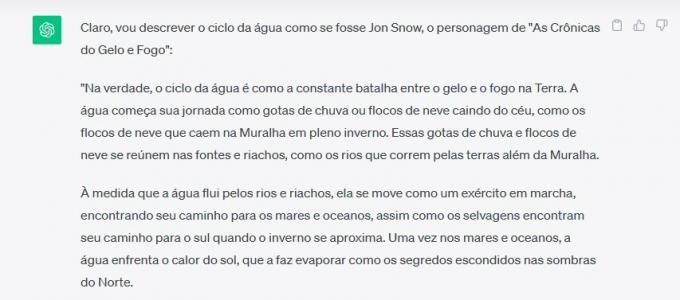A OpenAI is facing a new round of lawsuits from plaintiffs. This time, famous writer George R.R. Martin, author of “A Song of Ice and Fire”, also joins the list of petitioning authors.
The United States authors' union, known as the Authors Guild, is responsible for the legal action which accuses OpenAI of violating writers' copyrights by using their works to train the ChatGPT.
see more
Project reinforces National School Meal Program
Daycare centers should prioritize children who are victims of violence
This action follows the same line as the lawsuit initiated in July by other authors, including Sarah Silverman, John Grisham, Christopher Golden, Jonathan Franzen and Elin Hilderbrand.
Accusations of systematic copyright theft
The Authors Guild claims that OpenAI copied the plaintiff authors' works “without permission or consideration” and used these copyrighted works to train its large language models (LLMs).
LLMs have the ability to generate human text-like responses in response to users' commands. Here is the example used by the prosecution below:

(Image: Authors Guild/OpenAI/reproduction)
In a test involving ChatGPT and questions related to “Game of Thrones”, ChatGPT demonstrated knowledge of the work of George R.R. Martin.
However, the debate about how Artificial Intelligence accesses and uses information available on the internet has also been raised. This occurs since ChatGPT is trained based on content available on websites, such as the work's Wikia.
The dispute is now in the hands of the United States Federal Court, which must resolve this complex issue about copyright and Artificial Intelligence.
The battle between human authors and AI is just beginning
This recent legal action adds to a growing debate about Copyright and the use of generative AIs, involving not only writers, but also visual artists, press outlets and programmers.
Resolving these disputes promises to be protracted and complex as technology continues to evolve and raise increasingly challenging legal questions.
